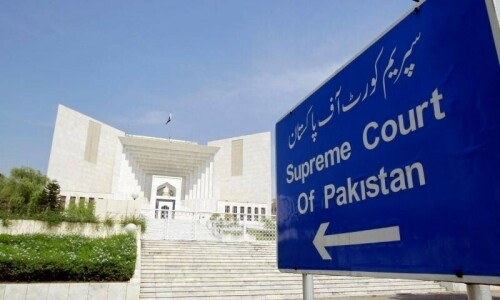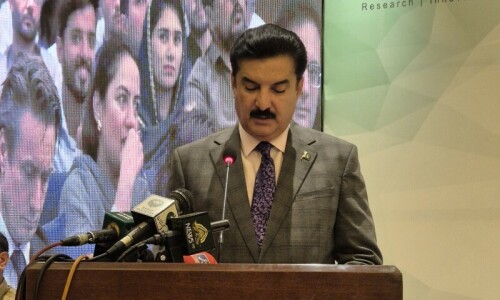KARACHI: The government’s borrowings in the first 11 months of the outgoing fiscal year have exceeded the combined figure of the two preceding fiscal years.
This huge borrowing from banks was made when the interest rate was unprecedentedly high, at 22 per cent, indicating the size of debt servicing will enormously increase and exceed the budget estimates for the upcoming fiscal year.
According to the SBP data, the government borrowed Rs7.39 trillion from July 2023 to June 7, 2024. There are still 23 days of borrowing to be reported.
This was more than the government’s collective borrowings in FY23 and FY22, reflecting the high spending while the development budget was slashed to meet other expenses in the outgoing fiscal year.
The government borrowed Rs3.72tr in FY23 and Rs3.49tr in FY22, picking up Rs7.16tr combined much lower than Rs7.389tr in 11MFY24.
Bankers believe the total borrowing for FY24 could touch Rs8tr by June 30. This excessive borrowing practically makes it impossible for the government to spend money on development projects; instead, it spends its entire tax revenue on debt servicing.
According to the budget document for the outgoing FY2023-24, the government would spend Rs7.21tr on domestic debt servicing and an additional Rs1.04tr on foreign debt servicing, taking the total to Rs8.25tr.
In the upcoming FY25, the government has allocated Rs8.736tr for domestic debt servicing and Rs1.04tr for foreign debt servicing, which will eat up Rs9.77tr.
The government estimated that revenue generation in FY24 would increase by 30pc and believes it will grow by 40pc in the next fiscal year.
Economy experts believe that the government will not achieve the Rs12.97tr tax collection target set for FY25 as it has already missed the Rs9.41 target of FY24. However, the new government’s massive borrowing could be the main hurdle for growth, as debt servicing will rise.
“The banks are investing in government papers to earn risk-free easy money, but the private sector has been ousted from the market,” said a banker.
This was mainly due to a higher interest rate recently cut by 1.5pc to 20.5pc. The business community also finds this rate high and is demanding that it be brought down close to the inflation rate. In May, the inflation rate was 11.8pc, and the business community wants to see the interest rate reduced to 13 to 14pc.
Published in Dawn, June 25th, 2024














































